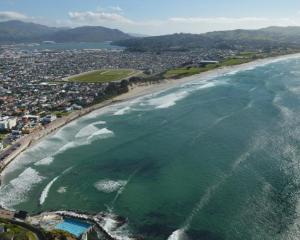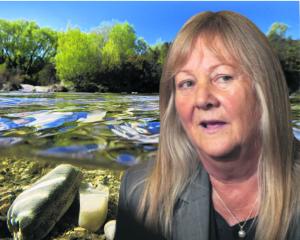A significant report on the trends of water quality in Otago’s rivers and lakes in the past two decades has proved difficult to understand, some regional councillors say.
Otago regional councillors were given the 155-page document by staff at a full council meeting this week.
It showed that water quality largely degraded in the past 20 years, but in the past 10 years, degradation was variable.
While the overall quality in the last decade had not worsened, it did not greatly improve, either.
The study reports on the state of water quality at 120 Otago sites, using nationwide targets specified in the national policy statement for freshwater management 2020.
It also assesses water quality trends at each site and across Otago as a whole.
The information in the report will inform the development of the council’s new land and water regional plan.
However, some councillors found the report was difficult to understand.
Cr Bryan Scott said he had to "dig" for information before finding there was "a hell of a lot of work to be done".
Other councillors agreed it was challenging, and Cr Michael Deaker said there should have been a glossary of the terms used throughout the report.
"I think I managed to understand what the paper wanted me to understand, and that is that we have got a hell of a problem," he said.
Council staff said they would take the advice on board and that the council’s communications team was working to better communicate the science to a variety of audiences.
That communication plan would be in place later this year.
Questions were also raised about the report not explaining why water was degrading.
The council did not have detailed information on land use and land management changes at a local or catchment scale.
Chief executive Sarah Gardner said the council now had a land scientist to fill that gap.
At the beginning of the meeting, councillors were urged by Dunedin fisherman Richard Robson to be more proactive, not reactive, in preventing the degradation of streams.
Mr Robson reported a major fish kill in Kaikorai Stream in February.
Two independent investigations linked a council contractor’s work to the fish kill and included a raft of recommendations for the council to improve its practices.
Mr Robson told councillors testing should be ongoing.
"We want these fragile ecosystems protected, not just fixed."
While discussing the water quality report, Cr Gretchen Robertson said water quality was not good enough in Otago and she felt embarrassed by where the council was at.
"We were asked this morning [by Mr Robson], ‘Do we care enough?"’ she said.
"Obviously we have not cared enough in the past, but we do care enough going forward?"
Councillors will receive a report from staff by June 23 on the approach the council will take to prioritise how to deal with the report’s findings.
Advertisement
Comments
To be fair, most conversations with Council staff or consent decisions written by Council staff lack clarity (with many decisions often including unlawful or unenforceable conditions which is odd given they are ISO accredited.)
good lord - either demand reporting that meets the standard, or educate yourselves in the science so you know what the experts are saying, and you can do the job that we voted you in to do.












